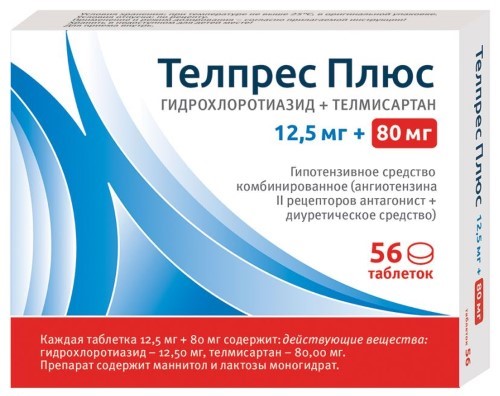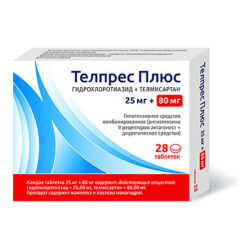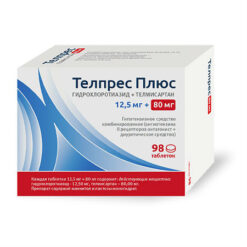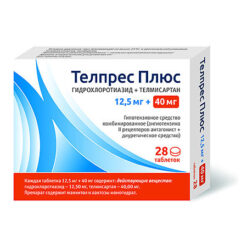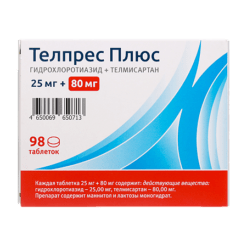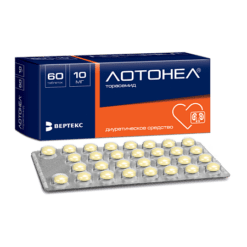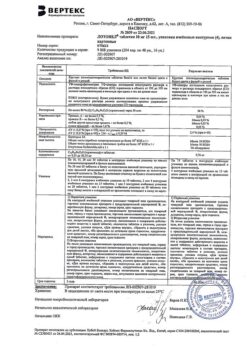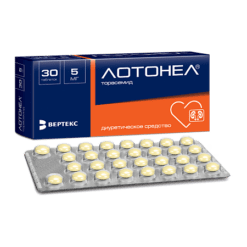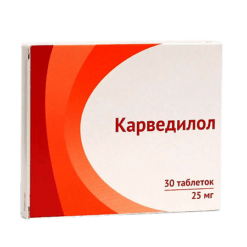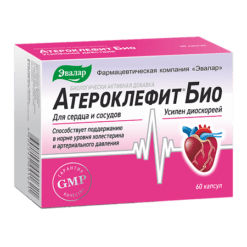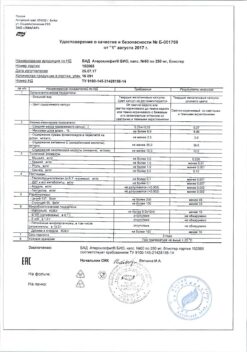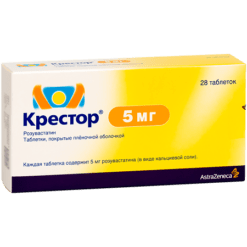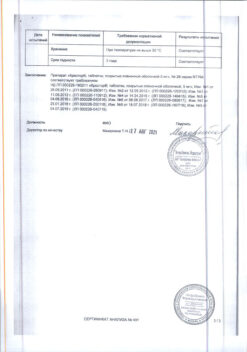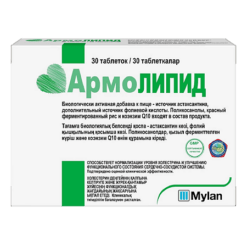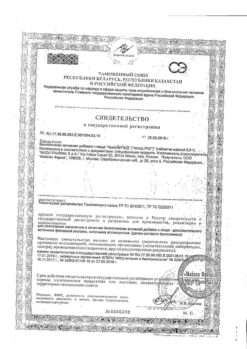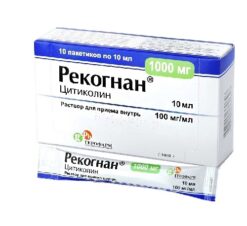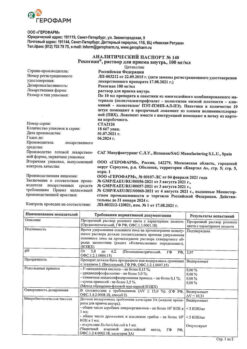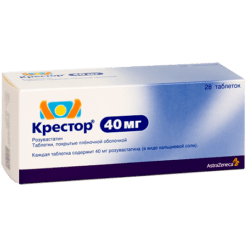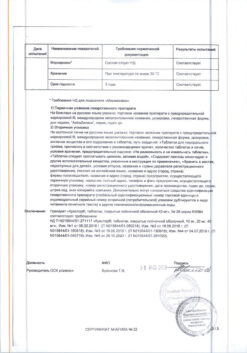No products in the cart.
Telprez Plus, tablets 80 mg+12, 5 mg 56 pcs
€22.41 €18.67
Description
Telmisartan is a specific angiotensin II receptor antagonist (type AT1), effective when taken orally. It has a high affinity for the AT1 subtype of angiotensin II receptors, through which the action of angiotensin II is realized. It displaces angiotensin II from binding to the receptor, having no agonist effect against this receptor. Telmisartan binds only to the AT1 subtype of the angiotensin II receptor. The binding is long-lasting. It has no affinity for other receptors, including AT2 receptor and other less studied angiotensin receptors. The functional significance of these receptors and the effect of their possible overstimulation by angiotensin II, the concentration of which increases with telmisartan administration, has not been studied. It reduces the blood concentration of aldosterone, does not inhibit plasma renin and does not block ion channels. Telmisartan does not inhibit angiotensin-converting enzyme (kinininase II) (an enzyme that also degrades bradykinin). Therefore, no intensification of bradykinin-induced side effects is expected.
In patients with arterial hypertension, telmisartan at a dose of 80 mg completely blocks the hypertensive effect of angiotensin II. The onset of antihypertensive action is observed within 3 hours after the first oral administration of telmisartan. The action of the drug persists for 24 hours and remains significant up to 48 hours. A pronounced antihypertensive effect usually develops in 4 weeks after regular drug intake.
In patients with arterial hypertension telmisartan reduces systolic and diastolic blood pressure (BP) without affecting heart rate (HR).
In case of abrupt telmisartan withdrawal BP gradually returns to the initial level without development of “withdrawal” syndrome.
Indications
Indications
– Arterial hypertension;
– Reduction in cardiovascular morbidity and mortality in patients aged 55 years and older with a high risk of cardiovascular disease.
Active ingredient
Active ingredient
Composition
Composition
Active ingredients:
Hydrochlorothiazide, 12.50 mg; telmisartan, 80.00 mg;
Excipients:
Mannitol – 327.70 mg, povidone-K25 – 21.60 mg, crosspovidone – 12.00 mg, magnesium stearate – 8.50 mg, meglumine – 24.00 mg, sodium hydroxide – 6.70 g, lactose monohydrate – 49,84 mg, microcrystalline cellulose – 32.00 mg, hypromellose – 3.00 mg, sodium carboxymethyl starch, type A – 2.00 mg, iron oxide red (E 172) – 0.17 mg.
How to take, the dosage
How to take, the dosage
Orally, regardless of meals.
Hypertension
The initial recommended dose of Telprez is 1 tablet (40 mg) once daily. In cases when therapeutic effect is not achieved the maximum recommended dose of Telprez may be increased to 80 mg once daily. When deciding on increasing the dose, it should be taken into account that the maximum antihypertensive effect is usually achieved within 4-8 weeks after the start of treatment.
Lower cardiovascular morbidity and mortality
The recommended dose is 1 tablet of Telprez 80 mg once daily.
In the initial period of treatment, monitoring of blood pressure (BP) is recommended; correction of antihypertensive therapy may be necessary.
Renal dysfunction
In patients with severe renal dysfunction and patients on hemodialysis, experience with use is limited.
In these patients, the recommended starting dose is 20 mg daily. No dose adjustment is required in patients with mild to moderate renal dysfunction.
Hepatic impairment
In patients with mild and moderate hepatic impairment (Child-Pugh grades A and B, respectively) the daily dose of Telpras should not exceed 40 mg.
Elderly patients
Dose adjustment is not required in elderly patients.
Interaction
Interaction
The interaction studies were conducted with adults only.
Lithium. When concomitant use of lithium with ACE inhibitors, a reversible increase in the serum concentration of lithium and an increase in its toxicity have been reported. Such rare cases of interaction have also been reported with angiotensin II receptor antagonists (including telmisartan/hydrochlorothiazide). Simultaneous use of lithium and the drug Telprez Plus is not recommended. Close monitoring of serum lithium levels is recommended if such a combination has been shown to be effective.
Drugs associated with potassium loss and hypokalemia (e.g., other potassium withdrawing diuretics, laxatives, corticosteroids, ACTH (ACTH), amphotericin, carbenoxolone, penicillin G sodium, salicylic acid and derivatives)
The use of these drugs is recommended./p>
When using these drugs together with the telmisartan/hydrochlorothiazide combination, monitoring of plasma potassium levels is recommended.
Medications that can increase sodium levels and cause hyperkalemia (e.g., drugs that inhibit the renin-angiotensin system, potassium-saving diuretics, potassium supplements, salt substitutes containing potassium, cyclosporine or other drugs such as sodium heparin)
When using these drugs together with the telmisartan/hydrochlorothiazide combination, monitoring of plasma potassium levels is recommended. Given the experience with other drugs that inhibit the renin-angiotensin system, concomitant use of these drugs may lead to increased serum potassium levels and therefore is not recommended.
Drugs causing impairment of serum potassium levels
. Monitoring of serum potassium levels and ECG is recommended when using Telprez Plus with drugs that cause impaired serum potassium levels (e.g. foxglove glycosides, antiarrhythmic drugs) and drugs that stimulate paroxysmal torsades de pointes tics (including some antiarrhythmic drugs), hypokalemia, which is a triggering factor for torsades de pointes :
Special Instructions
Special Instructions
Pregnancy. Therapy with angiotensin II receptor antagonists should not be initiated during pregnancy. Until therapy with angiotensin II receptor antagonists is considered appropriate, patients planning to become pregnant should be switched to alternative antihypertensive agents that have an established safety profile for use in pregnancy. If pregnancy is established, angiotensin II receptor antagonists should be discontinued immediately and alternative therapy should be initiated if necessary.
Liver function impairment. Telprez Plus should not be administered to patients with cholestasis, obstructive bile duct disease and severe hepatic insufficiency because telmisartan is mainly excreted with bile. Reduced hepatic clearance of telmisartan can be expected in such patients. In addition, Telprez Plus should be prescribed with caution in patients with impaired liver function or advanced liver disease because even minor changes in water-electrolyte balance may cause hepatic coma.
Renovascular hypertension. There is an increased risk of severe arterial hypotension and renal failure if patients with bilateral renal artery stenosis or renal artery stenosis of the only kidney take medications that affect renin-angiotensin-aldosterone system.
Kidney failure and kidney transplantation. Telprez Plus should not be used in patients with severe renal insufficiency (creatinine clearance less than 30 ml/min). There is no experience in administration of Telprez Plus in patients who have recently had a kidney transplantation. Since the experience of Telprez Plus administration in patients with mild to moderate renal dysfunction is small, periodic monitoring of serum potassium, creatinine and uric acid levels is recommended. In patients with impaired renal function, azotemia associated with thiazide diuretics may occur.
Decrease of the BOD. In patients with sodium and/or circulating blood volume deficiency through potent diuretic therapy, salt restriction in the diet, diarrhea, or vomiting, symptomatic hypotension may occur, especially after the first dose. Therefore, the above conditions should be corrected before prescribing Telprez Plus.
Double blockade of renin-angiotensin-(RAAS). There is evidence that concomitant use of ACE inhibitors, angiotensin II receptor blockers or aliskiren increases the risk of hypotension, hyperkalemia and decreased renal function (including acute renal failure).
Hence, dual blockade of the RAAS by combined use of ACE inhibitors, angiotensin II receptor blockers, or aliskiren is not recommended.
If dual blockade is considered absolutely necessary, it should only be performed under the supervision of a specialist and with continuous close monitoring of renal function, electrolytes and blood pressure.
The ACE inhibitors and angiotensin II receptor blockers should not be administered simultaneously in patients with diabetic nephropathy.
In patients whose vascular tone and renal function are primarily dependent on renin-angiotensin activity (e.g., patients with severe congestive heart failure or renal disease, including
Primary aldosteronism. Patients with primary aldosteronism usually do not respond to antihypertensive preparations with action of inhibiting renin-angiotensin system, therefore, administration of Telprez Plus is not recommended for these patients.
Aortic and mitral valve stenosis, obstructive hypertrophic cardiomyopathy. As with the use of other vasodilators, special caution is necessary when treating patients with aortic and mitral valve stenosis or obstructive hypertrophic cardiomyopathy.
Metabolic and endocrine effects. Thiazide treatment may decrease glucose tolerance. For patients with diabetes mellitus, it may be necessary to adjust the dose of insulin or oral antidiabetic drugs. During thiazide therapy, latent diabetes mellitus may occur. An increase in cholesterol and triglycerides is associated with treatment with thiazide diuretics. However, the 12.5 mg dose contained in the drug Telprez Plus has no such effect or this effect is only minimal. Some patients receiving thiazide drugs may develop hyperuricemia or apparent gout.
Electrolyte imbalance. In any patient treated with diuretics, serum electrolyte levels should be determined at intervals.
The thiazides, including hydrochlorothiazide, can cause fluid or electrolyte imbalances (specifically hypokalemia, hyponatremia, and hypochloremic alkalosis). Signs of fluid electrolyte imbalance include dry mouth, thirst, weakness, lethargy, sleepiness, restlessness, muscle pain or cramping, muscle fatigue, arterial hypotension, oliguria, tachycardia and gastrointestinal disorders such as nausea and vomiting.
Hypokalemia. Although thiazide diuretics may result in hypokalemia, concomitant therapy with telmisartan may reduce hypokalemia caused by diuretics.
Hyperkalemia. Through angiotensin II receptor antagonism (AT 1 ) associated with telmisartan, a component of Telprez Plus, hyperkalemia may occur. Clinically significant hyperkalemia due to Telprez Plus has not been documented. Risk factors for hyperkalemia include renal insufficiency and/or heart failure and diabetes mellitus. Potassium-saving diuretics, potassium supplements or salt substitutes containing potassium should be prescribed with caution concomitantly with the telmisartan/hydrochlorothiazide combination.
Hypercalcemia. Thiazides may decrease urinary calcium excretion and cause intermittent and mild increases in serum calcium levels in the absence of calcium metabolism disorders. Significant hypercalcemia may be a sign of occult hyperparathyroidism. Thiazides should be discontinued before parathyroid function tests are performed.
Hypomagnesemia. Thiazides cause increased urinary excretion of magnesium, which may lead to hypomagnesemia.
Ethnic differences. Like all other angiotensin II receptor antagonists, telmisartan is clearly less effective in reducing blood pressure in patients of the Negro race than in other races. This may be due to the high prevalence of conditions with decreased renin levels in patients of the Negro race with arterial hypertension.
Other conditions. As with any other antihypertensive medication, excessive reduction of blood pressure in patients with coronary cardiopathy or coronary artery disease may lead to myocardial infarction or stroke.
General disorders. Hypersensitivity reactions to hydrochlorothiazide are more likely in patients with a history of allergies or bronchial asthma.
It is known that the use of thiazide diuretics, including hydrochlorothiazide, may lead to an exacerbation of systemic lupus erythematosus.
In the use of thiazide diuretics there have been cases of photosensitivity reactions. If photosensitization occurs during treatment it is recommended to discontinue the drug. If repeated use of diuretics is considered necessary, it is recommended to protect exposed areas of the body from sunlight or artificial ultraviolet radiation.
Acute myopia and secondary glaucoma. Drugs containing sulfonamide or its derivatives may cause idiosyncrasy, which leads to transient myopia and acute closed-angle glaucoma. Hydrochlorothiazide is a sulfonamide derivative, but so far only isolated cases of acute closed-angle glaucoma have been reported with hydrochlorothiazide. Symptoms include an acute decrease in visual acuity or eye pain. Typically, these symptoms develop a few hours or a few weeks after starting therapy with this drug. If left untreated, acute closed-angle glaucoma can lead to permanent vision loss in the patient. If such a symptom is detected, therapy with this drug should first be discontinued as soon as possible. If intraocular pressure remains uncontrolled thereafter, drug or surgical treatment may be considered. Risk factors for acute angle closure glaucoma may include a history of allergy to sulfonamide or penicillin.
The drug may affect laboratory test results:
The drug may decrease plasma levels of protein-bound iodine
Treatment should be discontinued before laboratory testing to evaluate parathyroid function
The drug may increase serum free bilirubin concentrations.
Contraindications
Contraindications
– Hypersensitivity to the active ingredient or excipients of the drug;
– Pregnancy;
– Breast-feeding period;
– Obstructive biliary tract disease;
– Severe hepatic impairment (Child-Pugh class C);
The concomitant administration of – Concomitant use of Telprez with aliskiren in patients with diabetes and/or impaired renal function (glomerular filtration rate less than 60 ml/min/1.73 m2 );
– Concomitant use of ACE inhibitors in patients with diabetic nephropathy;
– Age
Side effects
Side effects
The most frequently reported side effect is dizziness. In rare cases (less than 1 case per 1000 patients) serious angioedema may occur.
Fixed-dose combination
Dose-dependence of side effects has not been established, and these effects have not been associated with gender, age, or race.
The side effects reported in all clinical trials that occurred more frequently (p ⤠0.05) with the combination of telmisartan and hydrochlorothiazide than with placebo are listed below according to organ system classes. Side effects observed with each component individually but which did not occur during clinical trials may occur during treatment with Telprez Plus.
In each group, adverse reactions are presented in descending order of severity.
Infections and invasions: rarely – bronchitis, pharyngitis, sinusitis.
Immune system disorders: rare – exacerbation or activation of systemic lupus erythematosus.
Metabolism: infrequent hypokalemia rare – hyperuricemia, hyponatremia.
Psychiatric disorders: infrequent – anxiety; rarely – depression.
Nervous system: frequently – dizziness infrequently – fainting, paresthesia; rarely – insomnia, sleep disturbance.
An organ of vision: rare – visual impairment, blurred vision.
Hearing organs: infrequent – vertigo.
Cardiovascular system: infrequent – tachycardia, arrhythmia, arterial hypotension, orthostatic hypotension.
Respiratory system: infrequent dyspnea; rarely – respiratory distress syndrome (including pneumonitis and pulmonary edema).
Gastrointestinal tract: rarely – diarrhea, dry mouth, flatulence rarely – abdominal pain, constipation, dyspepsia, vomiting, gastritis.
The digestive system: rarely – liver dysfunction / liver disease.
Skin and subcutaneous tissue disorders: rarely – angioedema (also fatal), erythema, itching, rash, hyperhidrosis, urticaria.
Muscular system disorders: infrequent – back pain, muscle cramps, myalgia rare – arthralgia, muscle cramps, pain in legs.
With the reproductive system: infrequent – erectile dysfunction.
General disorders: infrequent – chest pain; rarely – flu-like symptoms, pain.
Laboratory indicators: infrequent – elevated uric acid rarely – elevated creatinine, elevated blood CPK, elevated liver enzymes.
Additional information on individual components.
The side effects previously reported in association with the use of one component may occur with the telmisartan/hydrochlorothiazide combination, even if they were not observed in clinical studies of this combination.
Sepsis. In the PRoFESS study, there was a higher rate of sepsis among patients taking telmisartan than among those receiving placebo. This phenomenon could be either coincidental or related to a mechanism, the nature of which is not yet known.
Overdose
Overdose
There is limited information on telmisartan overdose in humans. The level of excretion of hydrochlorothiazide by hemodialysis has not been established.
Symptoms.
In telmisartan overdose, the most prominent manifestations were arterial hypotension and tachycardia also reported bradycardia, dizziness, vomiting, increased serum creatinine levels, and acute renal failure. Reduced electrolyte concentration (hypokalemia, hypochloremia) and hypovolemia due to excessive diuresis are associated with hydrochlorothiazide overdose.
Treatment.
Telmisartan is not eliminated by hemodialysis. Patients should be closely monitored and receive symptomatic and supportive therapy. Therapy depends on the time since drug administration and the severity of symptoms. Recommended interventions include inducing vomiting and/or gastric lavage. Activated charcoal may be used when treating an overdose. Serum electrolyte and creatinine levels should be monitored. If arterial hypotension occurs, the patient should be placed on his back and treated to quickly replenish fluid and salt in the body.
Similarities
Similarities
Additional information
| Manufacturer | Laboratorios Liconza S.A., Spain |
|---|---|
| Medication form | pills |
| Brand | Laboratorios Liconza S.A. |
Other forms…
Related products
Buy Telprez Plus, tablets 80 mg+12, 5 mg 56 pcs with delivery to USA, UK, Europe and over 120 other countries.

